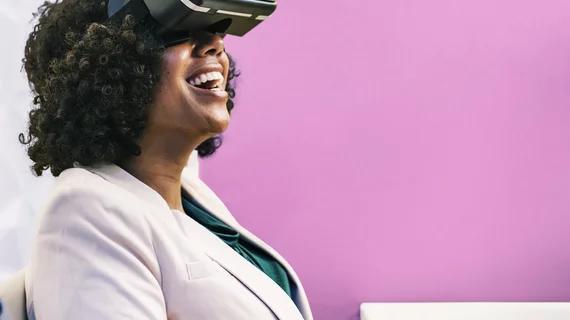Using VR while exercising may help with performance, exhaustion
For those who struggle with exercise, virtual reality may be the key for better performance and less exhaustion based on results from a recent study.
In a study published in Psychology of Sport and Exercise, a research team evaluated the effect VR had on a person’s performance while exercising. The team studied 80 people who did various exercises in a room with a chair, table and yoga mat. Half of the participants didn’t wear a VR headset, while the other half did.
According to the study, the participants were asked to do isometric bicep curls while holding 20 percent of the maximum weight they could lift. During that test, the VR group experienced 10 percent lower pain intensity than the non-VR group—showing a reduction in perception of pain and effort when using the technology.
Other results also showed that the VR group’s time to exhaustion was two minutes longer than the non-VR group while doing conventional exercise. Participants in the VR group also had a lower heart rate.
“It is clear from the data gathered that the use of VR technology can improve performance during exercise on a number of criteria,” lead researcher Maria Matsangidou said in a release. “This could have major implications for exercise regimes for everyone, from occasional gym users to professional athletes.”

